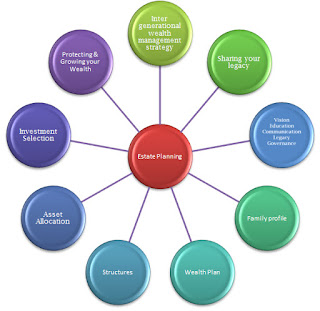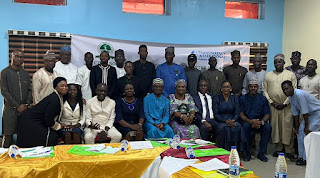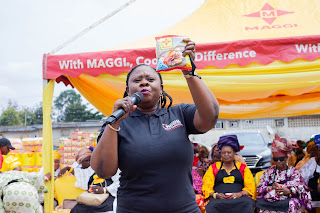Why rape victims, Chibok girls need health package – Experts
Tomorrow is the Global Day of Action for Access to Safe and
Legal Abortion. Many girls and women are still going through trauma as victims
of rape and incest in Nigeria today. The case of the over 200 Chibok girls
abducted last April is unimaginable. Yet, they cannot access the right to safe
and legal abortion if they have been abused and are pregnant because of
restrictions posed by the 1861 Abortion Law. But, experts have advocated that a
total health package recommended by the World Health Organisation (WHO) should
be offered to victims of sexual violence, including the abducted girls when
they are released. CHIOMA UMEHA (HEALTH EDITOR) writes.
L-R:
Toyin Aboh, Appolonia Adeyemi, all members of Network of Reproductive Health
Journalists in Nigeria (NRHJN) Dr. Nihinlola Mabogunje, Country Director of
Ipas in Nigeria and Yinka Shokunbi, National Secretary, NRHJN, during a meeting
of the group in Lagos, last weekend.
Since the beginning of this week, the media have been awash
with fresh reports that the Boko Haram Islamic sect has finally agreed to free
all the Chibok girls in a swap deal for 18 of its commanders currently in
detention.
It would be recalled that less than two weeks ago it was
reported that the insurgents had agreed to release only 30 female students
abducted in April in exchange for 18 of its members. The decision was allegedly
made after government authorities had held secret talks with one of Boko Haram’s
seniors identified as Umar.
However, finally, according to latest media reports, the
agreement on the release of 219 girls has been reached.
With this news, the hope of welcoming the abducted school
girls back into the society has again been renewed. For parents, guardians and
relations of the girls, they just can’t wait to welcome their daughters and
sisters who had been in the abductors’ den since April 14. As for the girls,
being left off the hook promises to be freedom for a new life where they can
live a life of dignity that is devoid of the slavery and servitude that their
terrorist abductors have subjected them to.
However, as concerned families and rights activists
campaigning for their freedom and the society await their return, the issue of
how to meet their immediate health needs has come to the fore. There is no
doubt that as victims of abduction, the girls may have been subjected to
harrowing rape experience and of course, heartless repeated rape which may have
resulted in lacerations. What about possible unplanned and unwanted
pregnancies? How about the psychological torture the girls would have been
subjected to and the lasting impact of such on their psyche?
Narrating the account of one of the three girls who escaped
from the camp of the terrorist Boko Haram, a clergy and expert on
counter-terrorism, Oladimeji Thompson, of The Omoluabi Network, who has been
working with other groups to assist victims of the abduction overcome their
pains said: “One of the girls I interviewed was being raped 15 times by 15 men
every day.” The girl was traumatised and confused, he said.
In other accounts, media report has quoted some Chibok girls
who escaped as being pregnant. During an interview on the Hausa service of the
British Broadcasting Corporation (BBC), former President Olusegun Obasanjo said
some of the Chiboks girls are pregnant while others may never return again.
For those that have escaped and the more that may ultimately
be released, the question that have naturally reoccurred is: what will the
affected girls do with such pregnancies?
While the father of one of the pregnant girl was quoted as
saying he does not want to have anything to do with the pregnancy, the girl who
survived the abduction said if she is delivered of the baby, she would do away
with it. This brings to the fore the hard facts and how to address problems
resulting from persistent abductions which are now rampant in the North eastern
states of Nigeria. Although, these issues have been on the front burner, the forthcoming Global Day of Action for Access to Safe and
Legal Abortion, makes them very relevant. The day to be marked on Sunday,
September 28, has been set aside to demand de-criminalisation of abortion. The
day has its origin in Latin America and
the Caribbean where women’s groups have been mobilising towards the September 28 event since the last two decades to ask their
governments to decriminalise abortion, tprovide access to safe and affordable
abortion services and end the stigma and discrimination towards women who
choose to have abortion.
Going by the provisions of the 1861 Abortion Law in Nigeria,
women in Nigeria can only procure abortion where the life of the mother is in
danger.
Hence, the Chibok girls or those representing them cannot
even demand to abort pregnancies arising from some of the rape that occurred
during their abductions. Even if the victims choose to terminate the
pregnancies, legally, they cannot procure them.
Apart from pregnancies, what about those Chibok girls who
had been subjected to rape countless times throughout the period that they were
held? What about their injuries, pains and the trauma they are facing
presently, among others?
Dr. Nihinlola Mabogunje, Country Director of Ipas in
Nigeria, said the focus should shift to how to compensate the Chibok girls in
terms of meeting their health needs.
According to her, although, the health needs of a rape
victim is wide and big, the relevant authorities should agree that rape victims
should be compensated.
Based on this plan, the Chibok girls, other abducted girls,
rape and incest victims should be given physical, mental and social wellbeing.
She said: “You look at her in terms of if she has a vaginal tear which is
possible, it will be sutured; if she develops a fistula, she will be cared for;
should she be pregnant, there will be need for her to be provided with
medications; if she has HIV, she will be provided with prophylaxis.” She added
that the problems of these victims must be addressed in a holistic way so as to
provide a way out for them.
Therefore, the
responsibility of the state and federal governments and other stakeholders to
the Chibok girls and other women who are subjected to rape should be viewed in
this light. The World Health Organisation (WHO) defines health as a state of
complete physical, mental and social well-being and not merely the absence of
disease or infirmity. Based on this recommendation, the health needs of the
Chibok girls must be met.
Already, those girls that escaped are already being offered
scholarships to pursue their education. It should be noted that if these girls
are not healthy, there will be no education to pursue.
“A man who raped a woman should compensate the woman. It is
not just enough for the offender to go to one year jail or thereabout. That
punishment is not enough. Mobogunje reasoned that in addition to the penalty,
the offender should be made to compensate the victim, and that this should be
the new trend. It could reduce incidence of rape in this environment, she said.
Speaking in a similar vein, president of the International
Federation of Women Lawyers, Hauwa Shekarau, said even the 1861 Abortion
Law criminalises abortion and only makes
it possible for a mother whose life is in danger to terminate a pregnancy in order to save her
life. However, the law did not specify
who determines that the life of the mother seeking to procure the abortion is
in danger.
Shekarau lamented that due to the restrictive nature of the
Abortion Law in the country, women and girls who are victims of rape and incest
are left to their own devices regarding what to do whenever rape results in
pregnancy.
There have been moves three different times in the past to
change the existing abortion law in line with modern trends especially on the
need to meet the health needs of female victims of rape and incest but “they
were turned down by mostly religious people and some other women who were
guided by their religious beliefs,” she said.
Furthermore, the president of the International Federation
of Women Lawyers said a more recent attempt to review the Violence Against
Persons Prohibition Bill (VAPP) in the House of Representative similarly
suffered a setback.
A clause inserted in the VAPP bill to enable victims of rape
and incest who get pregnant to have access to safe termination of their
pregnancies if they so choose was deleted before passing that bill. She said if
that clause had sailed through, it would have provided for victims of rape,
incest and women under some health conditions to terminate pregnancy if they
choose.
On another front in Imo State where the VAPP bill was
successfully passed with the same clause it generated uproar. Consequently, the
Imo State Governor, Owelle Rochas Okorocha, abrogated the law on the basis that
there was an outcry by the religious community to the effect that the entire
VAPP bill passed by the Imo State House of Assembly was an abortion law.
Having gone through the House of Representative, Shekarau
said the VAPP Bill is currently in the Senate. “We are advocating and lobbying
to ensure that they include that clause,” she said.
The journey to review the 1861 Abortion Law may be slow; but
the stakeholders are not relenting, considering that it would ultimately be to
the benefit of the entire women folk. A recent WHO report on ‘Trends in
Maternal Mortality: 1990-2013’ classifies Nigeria as on of the 10 countries
that contribute about 60 per cent of the world’s maternal mortality burden.
Though Nigeria currently has a maternal mortality ratio of 560 per 100,000 live
births, the ratio improved slightly, moving from the 630 per 100,000 recorded
in 2010.
This high mortality rate in Nigeria falls short of the
Millennium Development Goals (MDG) targets for 2015. With 2015 in the corner,
there are doubts that the goal of eradicating maternal mortality or reducing
the ugly trend drastically will be achieved.
Unsafe abortion contributes 13 per cent of maternal
mortality. Imagine how the incidence of maternal mortality will be reduced in
the country if there is a law that promotes safe abortion. This is food for thought.
See more at:
http://www.mynewswatchtimesng.com/rape-victims-chibok-girls-need-health-package-experts/#sthash.MCjAYmjk.dpuf




Comments
Post a Comment